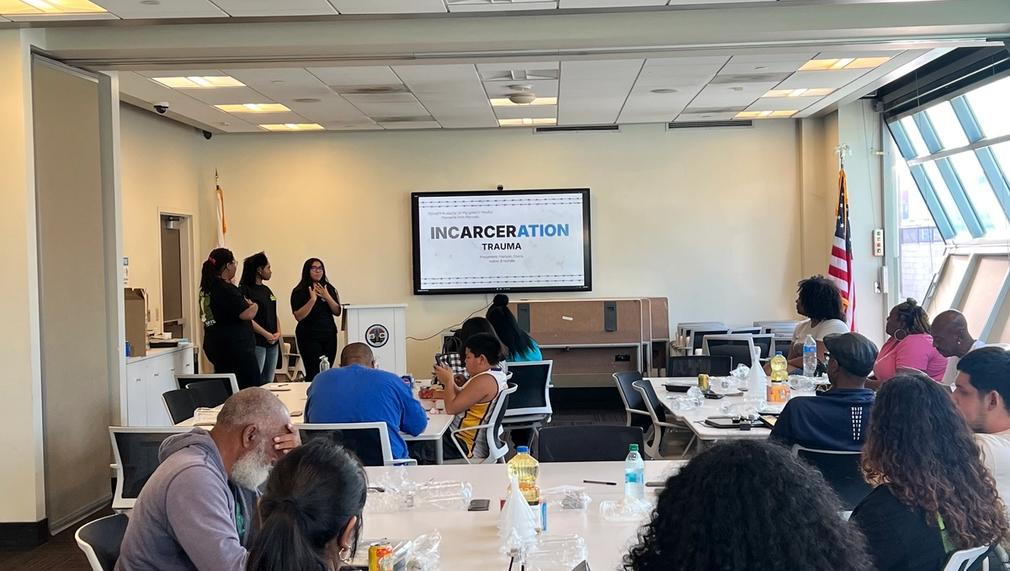"Future-Forged: Trauma-Informed Tech Training for Returning Citizens"
On My Grind Reentry Services Inc. will launch a 12-month, trauma-informed Innovation Lab to train 10 justice-involved Angelenos in 3D printing and AI-assisted design. The program provides stipends to value participant time and supports healing-centered engagement. With a goal of 80% completion and 70% transition to employment or further training, this pilot advances equity, workforce reintegration, and community safety through future-ready tech skills.

What is the primary issue area that your application will impact?
Access to tech and creative industry employment
In which areas of Los Angeles will you be directly working?
South LA Long Beach Gateway Cities
In what stage of innovation is this project, program, or initiative?
Pilot or new project, program, or initiative (testing or implementing a new idea)
What is your understanding of the issue that you are seeking to address?
Los Angeles’s booming tech and creative economy has largely excluded justice-involved individuals due to incarceration history, trauma, digital illiteracy, and persistent hiring stigma. Most reentry programs fail to address these barriers with trauma-informed care or future-ready skill training. This exclusion deepens income inequality, reinforces cycles of recidivism, and prevents high-potential individuals from participating in LA’s innovation economy. To break this cycle, we must provide healing-centered, tech-focused pathways that prepare justice-impacted Angelenos for careers in high-demand industries and support long-term community resilience.
Describe the project, program, or initiative this grant will support to address the issue.
On My Grind Reentry Services Inc. will implement a 12-month Innovation Lab that trains 10 justice-involved Angelenos in trauma-informed 3D printing, AI-assisted design, and digital literacy. Participants will receive hands-on instruction, mentorship from credible messengers, and stipends that honor their time and engagement. SMART goals include: 80% program completion, 70% transition to employment or further training, and 100% demonstrating growth in tech competencies. Participants will complete capstone projects and curate digital portfolios to demonstrate applied learning.
This early-stage pilot is designed for replicability and scalability. Lessons learned will inform expansion to other high-barrier communities across LA County, and the model will be positioned for integration with public workforce boards, community colleges, and reentry collaboratives. By offering a new on-ramp to LA’s innovation economy, this project addresses income inequality, reduces recidivism risk, and builds a scalable model of equity, workforce readiness, and community safety.
Describe how Los Angeles County will be different if your work is successful.
If our work is successful, Los Angeles County will be a region where justice-involved residents are no longer excluded from the innovation economy but are recognized as contributors to its growth. Communities most impacted by incarceration will gain access to tech-based career pathways that offer dignity, stability, and mobility. The success of this pilot will demonstrate that when trauma-informed care is integrated with future-ready skill training, recidivism declines, public safety improves, and untapped talent thrives. Over time, this model can be replicated across LA County—transforming reentry from a cycle of survival into a launchpad for creativity, entrepreneurship, and equity-driven prosperity.
Approximately how many people will be impacted by this project, program, or initiative?
Direct Impact: 10
Indirect Impact: 200